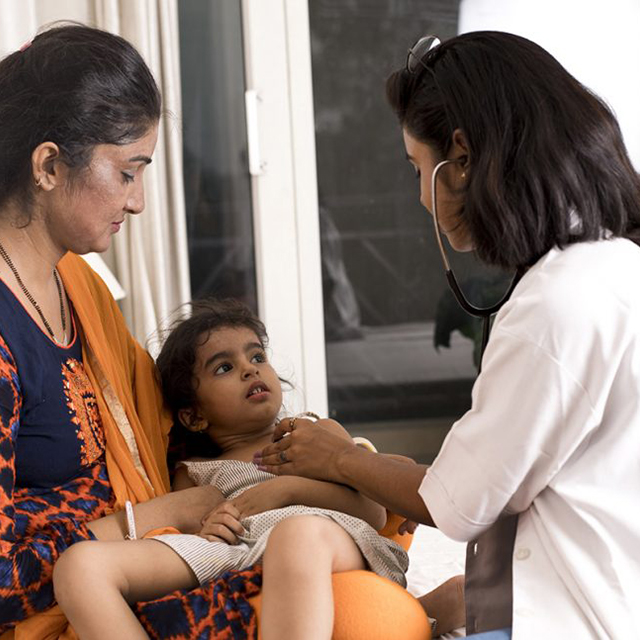Assistant professor Aesha John researches the understanding, impact and resources of parents with an intellectually disabled child.
(This story by James Russell originally appeared in the Spring 2019 issue of TCU Magazine.)
Aesha John moved to the U.S. from her hometown of Gujarat, India, to continue graduate studies in the early 2000s, but she kept her sights on her home country.
When the social work scholar studied agencies that provide services to parents of children with an intellectual disability, John noticed how models designed to assess family bonds revolved around Western notions of independence, affluence and available resources.
“We often forget the voices of people across the world,” said John, assistant professor of social work and director of the bachelor of social work program in the Harris College of Nursing & Health Sciences.
Social work’s stress and resilience framework in particular integrated Western assumptions into the assessment of how people handled raising a child with an intellectual disability. The framework homes in on three components of challenging parenting situations: how people make sense of their child’s disability, the impacts on the family and how much assistance formal resources provide.
But previous researchers assumed a science-based interpretative lens, a nuclear family unit, and the availability of health and educational resources.
To untangle the framework from its Western roots, John returned to India to speak with approximately 50 mothers of 3- to 6-year-olds with an intellectual disability ranging from autism to cerebral palsy and ask about how they handled and adapted to the child’s disability diagnosis. Until recently in India, she said, “mental retardation” was often the term used to refer to all intellectual disabilities.
The mothers’ responses led to an article in the October 2017 edition of the journal Intellectual and Developmental Disabilities. John co-wrote the study with Martha Zapata Roblyer, a research scientist at Oklahoma State University-Tulsa.
Read more in TCU Magazine.
